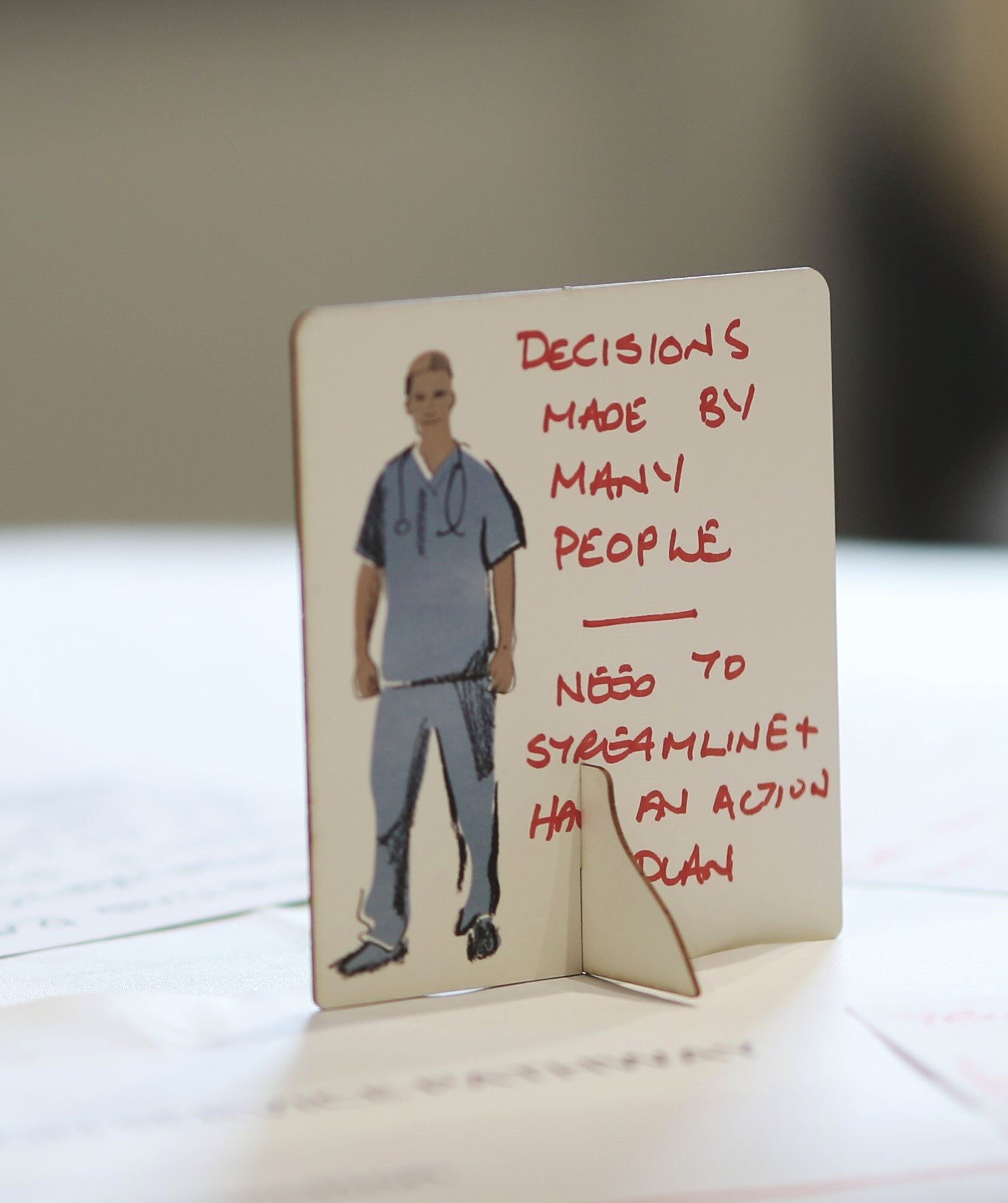SCOTCAP SERVICE MODEL EVALUATION
“SCOTCAP is a potential new shared service model for a video
capsule endoscopy in Scotland which compliments existing endoscopy services”
“I think it is going to be another sweet in the sweet shop, another tool in the tool box … ”
‘SCOTCAP Service Model Evaluation’ is a collaboration between Scotland’s Digital Health & Care Institute (DHI), participating health boards - NHS Highland, NHS Grampian and NHS Western Isles - and the Medtronic/ Corporate Health International (CHI) partnership. It was carried out during the SCOTCAP project’s Innovation Phase from May 2019 to March 2020.
The project partners are working together to develop a service model through an evaluative process. This evolutionary approach offers an innovative, adaptable and responsive approach to developing a new service model. The DHI and participating teams collaborated across an extensive programme of work, and employed design innovation methodologies, to ensure that the challenges experienced and opportunities identified were captured and analysed in order to underpin a set of recommendations for a service model blueprint. The service model blueprint will offer advisory actions for a ‘scaled version’ of SCOTCAP to support a national service model.
SCOTCAP Service Model Evaluation builds on the DHI’s early feasibility project ‘HICAP’ which was developed in collaboration with NHS Highland and Corporate Health International (CHI) in 2017, and resulted in an early stage visualisation of the future video capsule endoscopy service: https://futurehealthandwellbeing.org/scotcap
In conjunction with the Service Model Evaluation research, The University of Aberdeen and The University of Strathclyde are carrying out research to explore Service Evaluation and Patient Experience respectively.
APPROACH
The DHI Design Team is led by Design Researchers from the Glasgow School of Art (GSA), Innovation School. In this project the Design Team employed a design-led, co-production approach. We carried out a series of interviews and service evaluation workshops with professionals involved in endoscopy services, in order to capture insights about the evolution of the SCOTCAP service model during the Innovation Phase. The insights gathered included challenges and opportunities identified by each of the participating NHS Health Boards, areas for further improvement, and recommendations on how to achieve the ‘ideal and scalable SCOTCAP service model’. These insights supported the development of our key recommendations to enable the SCOTCAP service model to operate nationally at scale.
To read our recommendations, please click on the circles below to view the Interactive Blueprint and Project Report.
Project TEAM
Project Lead Michelle Brogan, Service Development Manager, Digital Health & Care Institute (DHI)
Design Lead Dr Jay Bradley, Research Fellow, The Glasgow School of Art (GSA) - DHI Design Team
Lead Author Dr Megan Palmer-Abbs, Research Fellow, GSA - DHI Design Team
Cate Green, Production Manager, GSA - DHI Design Team
James Wood, Research Intern, GSA - DHI Design Team
Gabriele Rossi, Design Technologist, GSA - DHI Design Team
Angela Bruce, Research Associate, GSA - DHI Design Team
Louise Mather, No Middle Name Creative, Photographer and Videographer
Project Partners
Copyright
This publication is copyright. Apart from any use as permitted under the Collaboration Agreement no part may be reproduced in any form without written permission.
Disclaimer
This document has been prepared in good faith on the basis of information available at the date of publication without any independent verification. The Digital Health & Care Institute (DHI) does not guarantee or warrant the accuracy, reliability, completeness or currency of the information in this publication nor its usefulness in achieving any purpose. Readers are responsible for assessing the relevance and accuracy of the content of this publication. The DHI will not be liable for any loss, damage, cost or expense incurred or arising by reason of any person using or relying on information in this publication.























![DHI Full Logo [COLOUR].jpg](https://images.squarespace-cdn.com/content/v1/5ab504e77c9327e5eed2778a/1593533381453-SN8STGSG8OCUS9J6UZPC/DHI+Full+Logo+%5BCOLOUR%5D.jpg)
